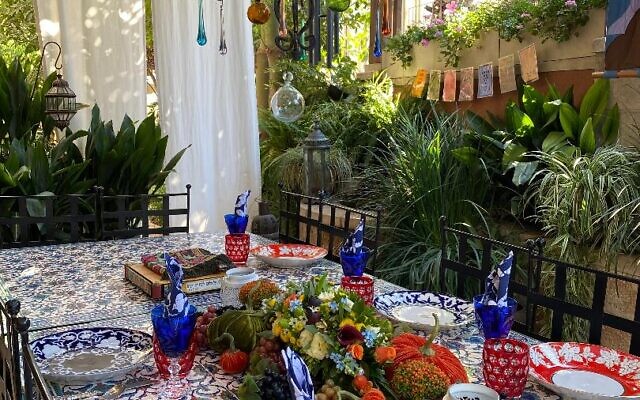5782 Starts the Sabbatical Year
Shmita may be a bigger deal in Jerusalem than it is in Atlanta.
The Jewish year 5782, which began on Sept. 7, is not an ordinary year in the Jewish calendar. It is known as a sabbatical year, or Shmita, as mentioned in the Book of Exodus. While most of the Atlanta Jewish community will probably not take much note, for Jews in Israel – particularly Orthodox Jews – the Shmita, has everyday significance.
In Hebrew, shnat shmita literally means “a year let go” or “released” — a year in which the Land of Israel is left to rest. According to the Torah, the land may not be worked, nor its produce bought and sold. While the “land” in question applies only to agriculture in Israel, there are also implications for Jews in the Diaspora.
According to Chabad, produce imported from Israel must have rabbinical certification and is subject to some laws and restrictions due to its sanctity. Also, the aspect of Shmita that applies to debt absolution affects Jews around the world. The Torah states that all private debts are forgiven, while public debts are exempt during the sabbatical year.

Again, in Israel, this facet of Shmita is more apparent. According to former Atlantan David Arnovitz, “For the absolution of debts, there is a legal practice called prozbul that allows debts to be carried over the Shmita year that every bank and business uses. In Israel, you can see the certificate in the bank.”
An Atlanta native who attended the Hebrew Academy – now the Atlanta Jewish Academy – and Briarcliff High School, Arnovitz made aliyah with his wife Andi and their five children in July 1999. He is currently the editor in chief of the “Koren Tanakh of the Land of Israel,” a series put out by Koren Publishers that tries to put the Bible in its ancient Near Eastern context.
Aside from seeing certificates in local banks, Arnovitz explains that his family observes Shmita in their own garden, doing only maintenance during the year. “We buy produce at the grocery store that holds according to one of the Shmita policies: either imported, heter mechira [selling land or transferring ownership to avoid the prohibition] (most stores, restaurants and food manufacturers do this, but it is not deemed strict enough by more observant people), or otzar beit din (more strict people do this).”
The nuances, Arnovitz said, are hard to explain, but essentially “you can eat whatever grows from your garden, but you can’t plant new things.”

Another former Atlantan, Rabbi Adam Frank, told the AJT that “unless a person directly engages in the growing or selling of produce, practically speaking, the Shmita year will not be an imposition or mean any change of behavior for Israelis. The Israeli rabbanut [religious authorities] utilizes dispensation methods to allow for the necessary provision of produce for the country’s population. The one area that may complicate matters for the Israeli on the street is in the area of planting one’s private garden. Many observant Jews will make arrangements to avoid any new planting in the property under their jurisdiction.”
Frank, who is currently involved in social activism aimed at breaking the Israeli rabbanut’s monopoly on religious authority, said the level of observance of Shmita varies among Jews worldwide.
“All observant Jews, whether Orthodox or otherwise, are aware of the matter [of Shmita] and are happy to rely on the state rabbinic authorities to make proper arrangements for the provision of produce,” said Frank. “Like the greater Jewish population, people’s private practices vary and there are both Orthodox and non-Orthodox Jews who are less stringent on matters of avoiding planting on personal property. Without a doubt, the level of fervency that one expresses for Jewish ritual during the rest of the year is also expressed in the observance of Shmita.”

Arnovitz’s rabbi, Shai Finkelstein of Kehilat Nitzanim in Jerusalem, recently sent out practical instructions for observing Shmita to his congregants. According to Rabbi Finkelstein, flowers can be planted until the 26th of Elul, which coincides with Sept. 3. He also addressed the question of whether people can plant household plants, noting that there are disputes depending on whether a “closed” or “unperforated” pot is used. Perhaps more importantly, Finkelstein said mowing one’s lawn is allowed, but weeding is prohibited during Shmita.
Again, those rules apply to property in Israel. Diaspora Jews may be impacted, however, by the fact that the Jewish National Fund will also stop planting trees for the next year.
- News
- Jan Jaben-Eilon
- jewish national fund
- atlanta jewish academy
- Shmita
- sabbatical year
- Israel
- agriculture
- Halacha
- Jewish law
- 5782
- Calendar
- torah
- Diaspora
- Chabad
- debt
- David Arnovitz
- Aliyah
- Koren Publishers
- Rabbi Adam Frank
- Shai Finkelstein
- Kehilat Nitzanim
- Jerusalem
- sukkah
- rabbanut
- Tamar Frank
- Andi Arnovitz
- Book of Exodus
- Land of Israel
- Hebrew Academy
- Briarcliff High School
- heter mechira




comments